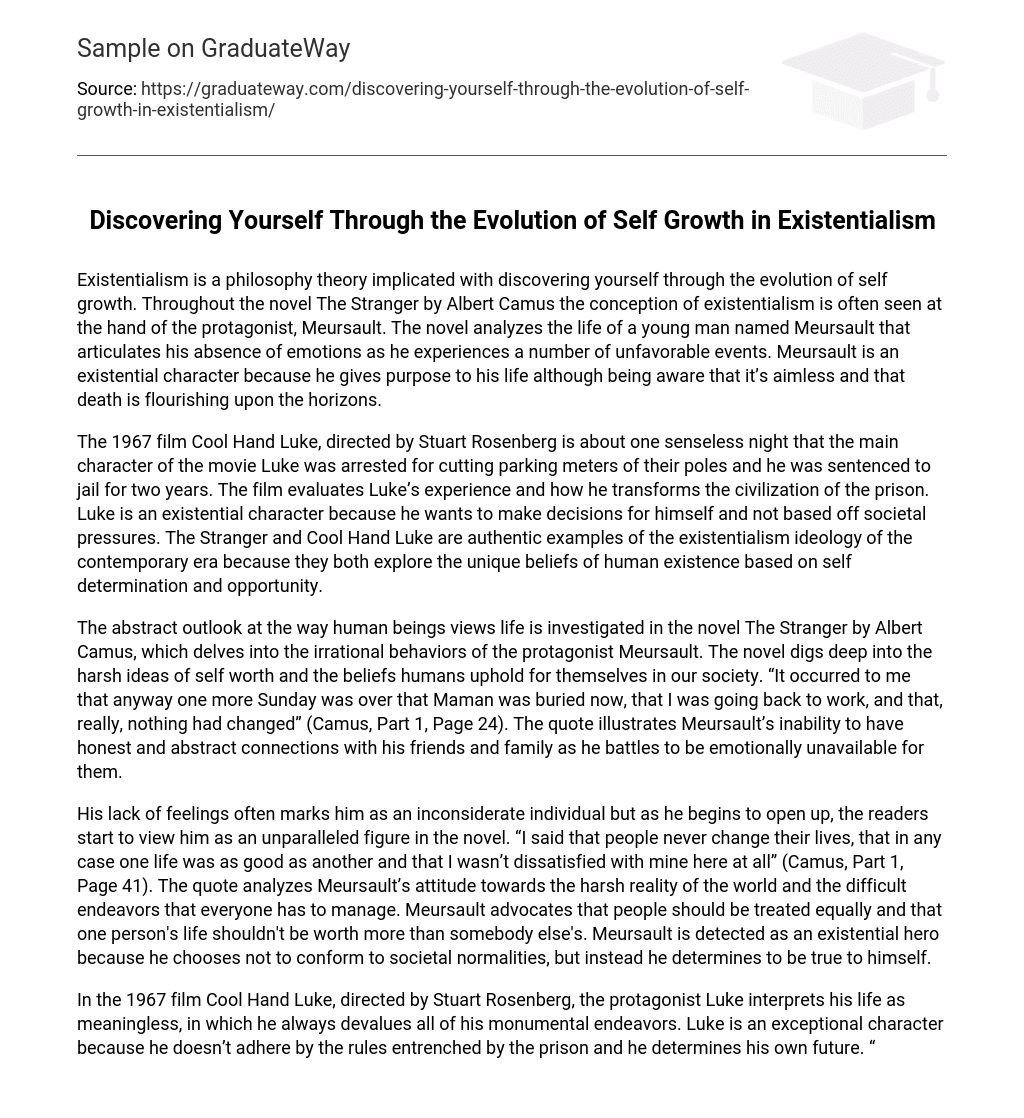Existentialism is a philosophy theory implicated with discovering yourself through the evolution of self growth. Throughout the novel The Stranger by Albert Camus the conception of existentialism is often seen at the hand of the protagonist, Meursault. The novel analyzes the life of a young man named Meursault that articulates his absence of emotions as he experiences a number of unfavorable events. Meursault is an existential character because he gives purpose to his life although being aware that it’s aimless and that death is flourishing upon the horizons.
The 1967 film Cool Hand Luke, directed by Stuart Rosenberg is about one senseless night that the main character of the movie Luke was arrested for cutting parking meters of their poles and he was sentenced to jail for two years. The film evaluates Luke’s experience and how he transforms the civilization of the prison. Luke is an existential character because he wants to make decisions for himself and not based off societal pressures. The Stranger and Cool Hand Luke are authentic examples of the existentialism ideology of the contemporary era because they both explore the unique beliefs of human existence based on self determination and opportunity.
The abstract outlook at the way human beings views life is investigated in the novel The Stranger by Albert Camus, which delves into the irrational behaviors of the protagonist Meursault. The novel digs deep into the harsh ideas of self worth and the beliefs humans uphold for themselves in our society. “It occurred to me that anyway one more Sunday was over that Maman was buried now, that I was going back to work, and that, really, nothing had changed” (Camus, Part 1, Page 24). The quote illustrates Meursault’s inability to have honest and abstract connections with his friends and family as he battles to be emotionally unavailable for them.
His lack of feelings often marks him as an inconsiderate individual but as he begins to open up, the readers start to view him as an unparalleled figure in the novel. “I said that people never change their lives, that in any case one life was as good as another and that I wasn’t dissatisfied with mine here at all” (Camus, Part 1, Page 41). The quote analyzes Meursault’s attitude towards the harsh reality of the world and the difficult endeavors that everyone has to manage. Meursault advocates that people should be treated equally and that one person’s life shouldn’t be worth more than somebody else’s. Meursault is detected as an existential hero because he chooses not to conform to societal normalities, but instead he determines to be true to himself.
In the 1967 film Cool Hand Luke, directed by Stuart Rosenberg, the protagonist Luke interprets his life as meaningless, in which he always devalues all of his monumental endeavors. Luke is an exceptional character because he doesn’t adhere by the rules entrenched by the prison and he determines his own future. “Yeah, well, sometimes nothin’ can be a real cool hand.” Luke concludes that everyone has self-determination because as human beings we have the freedom to act the way we want and to choose the outcome we want in life. “I never planned anything in my life.”





